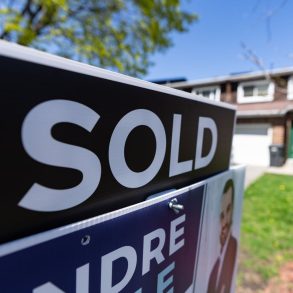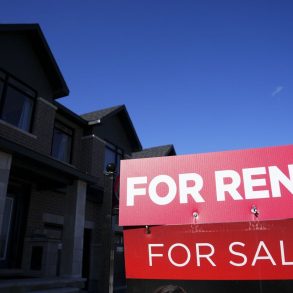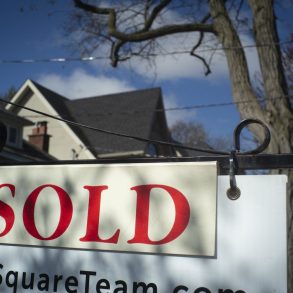For the eighth straight month, Canadian home prices set a new record high in February, the Canadian Real Estate Association reported on Monday.
The average house price surged 25% from last year to a new high of $678,091, CREA’s figures show. At the same time, housing inventories continue to tighten, with just 1.8 months of inventory available—the lowest reading on record. This is the amount of time it would take to liquidate current inventories at today’s rate of sales. In Ontario, there are now 40 regional markets with less than one month of housing supply available, up from 35 markets last month.
“We are right at the start of the first undisturbed (by policy or lockdown) spring housing market in years and we also have the most extreme demand-supply imbalance ever by a large margin. So, the question is, what is going on?” CREA’s senior economist, Shaun Cathcart, said in a statement.
“I think part of it is demand that built up as a result of regulatory changes in the years leading up to COVID that is playing out now,” he added. “(And) part of it is demand that is being pulled forward from the future either in search of a home base to ride out the pandemic, or to lock down a purchase amid rapidly rising prices while securing a record low mortgage rate.”
In other words, one of the key factors helping to propel this market is FOMO, or the “fear of missing out” on getting into the housing market before prices continue to rise out of reach.
Cross-Country Round-up of Home Prices
Several communities—all within a couple hours’ drive from the Greater Toronto Area—saw prices skyrocket by more than 35%. They included Tillsonburg District (+39.7%), Woodstock-Ingersoll (+36.6%) and the Lakelands cottage country region, comprising Parry Sound, Muskoka, Haliburton and Orillia (+37.4%).
Here’s a look at some more regional and local housing market results for February:
- Ontario: $864,159 (+24.5%)
- Quebec: $418,230 (+22.5%)
- B.C.: $887,695 (+17.1%)
- Alberta: $418,403 (+8.5%)
- Halifax-Dartmouth: $450,562 (+36.9%)
- Barrie & District: $685,800 (+33.8%)
- Ottawa: $578,800 (+24.9%)
- Greater Montreal Area: $451,900 (+18.8%)
- Greater Toronto Area: $969,600 (+14.8%)
- Winnipeg: $304,400 (+12.4)
- Greater Vancouver Area: $1,084,000 (+6.8%)
- Victoria: $752,300 (+6.4%)
- Calgary: $426,600 (+3.7%)
- Edmonton: $324,300 (+3.6%)
- St. John’s: 262,200 (+2.5%)
Housing Market Predictions for 2021
In an updated forecast released on Monday, CREA says it expects about 700,000 properties to trade hands in 2021, which would be a 27% increase from the 551,262 sales in 2020. Prices are also expected to continue rising by 16.5% on an annual basis to $665,000 for the whole of 2021, and a more moderate increase of just 2% to $679,341 in 2022.
“This reflects the current unprecedented imbalance of supply and demand,” CREA said in its forecast.
RBC’s Robert Hogue agrees with CREA that prices will continue to rise over the next year or so, but suggests price growth could turn negative by the end of 2022.
“Signs of overheated market conditions of course raise the risk of a price correction down the road,” he wrote in a research note. “Our base case scenario, though, remains that prices will continue to appreciate in the year ahead, albeit at a slower and slower pace as we get closer to 2022.
Factors that will eventually cool homebuyer demand include a “creeping-up” of longer-term interest rates, deteriorating affordability, a return to working from the office and possible policy intervention, Hogue added, suggesting the stage is set for a “soft landing.”
“We think modest outright price declines could be in the cards over the medium term, perhaps by the latter stages of 2022 when interest rates rise more broadly.”







